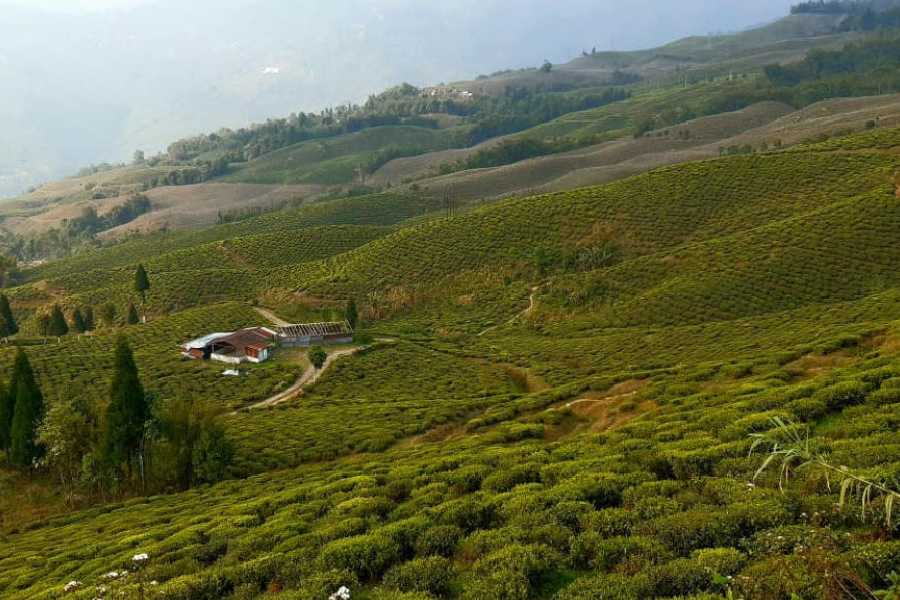A section of the Darjeeling Tea industry has expressed its reservations over the state government’s announcement to increase land share for non-tea activities in tea estates.
Many hill planters believed the government’s thrust should be on reviving the ailing Darjeeling Tea industry rather than on exploring non-tea alternatives.
This comes in the wake of chief minister Mamata Banerjee’s announcement earlier this month of allowing tea gardens to use 30 per cent of the total garden’s fallow or uncultivated land for non-tea purposes. Earlier the cap was at 15 per cent of non-tea land.
“This move will only benefit a handful of tea gardens that are attached to towns. Moreover, where is fallow land in the tea gardens of the hills?” asked a senior planter.
The Darjeeling Tea industry comprises 87 tea gardens, most of which are far away from urban areas and in hilly terrains, unlike the gardens of the Terai and the Dooars.
Mamata made her announcement to woo investors to the state, but it triggered immediate protests from tea garden workers and unions.
“The emphasis should be on reviving the industry, increasing farm operations and not on looking at alternatives for the Darjeeling tea industry,” said the planter.
Many tea gardens even in the Darjeeling hills opted for tea tourism when the government allowed non-tea activities following a policy enforced in 2019.
“However, apart from the time immediately after the Covid-19 pandemic, when there was a huge rush of tourists, we are not doing that well through tourism,” said a planter who is also into tea tourism.
Tourist resorts in gardens near towns have reported better trade figures, the
planter added.
Planters maintain that the production of Darjeeling Tea came down from 14 million kilos of made tea to around 6.5 million kilos annually.
“Even then, we face difficulty in selling our tea as Nepal tea has entered the market. Our industry was badly affected by the 104-day strike in 2017. This was when traders started replacing Darjeeling tea with that from Nepal, and many have stuck to it,” said the planter.
The Darjeeling planters sought subsidy from the Centre following the 2017 shutdown but to no avail.
Planters of the hill garden stressed political stability was more important for investors. “Even if the land is available, would investors come to hill gardens, given the political instability?” the planter asked.
Apart from low sales, the Darjeeling industry is also facing a workforce crisis.
“Absenteeism is at an all-time high, touching around 40 per cent,” said a planter.
The Darjeeling tea industry employs around 55,000 permanent and 15,000 temporary workers.
Raju Bista, the BJP Darjeeling MP, also stressed that the tea industry has immense potential to generate revenue. “This can be achieved by either incentivising corporations to invest in these gardens through production linked incentives, better marketing of tea internationally, or by empowering tea garden workers to run the gardens as cooperatives,” said Bista.
Govt-industry meet
A meeting between the state government and the representatives of the tea industry, including small tea growers, which was supposed to be held on Monday will now be held on Tuesday. “The meeting will be held at the chief secretary’s conference hall at Nabanna and is scheduled to start at 4.30pm,” the source added.











